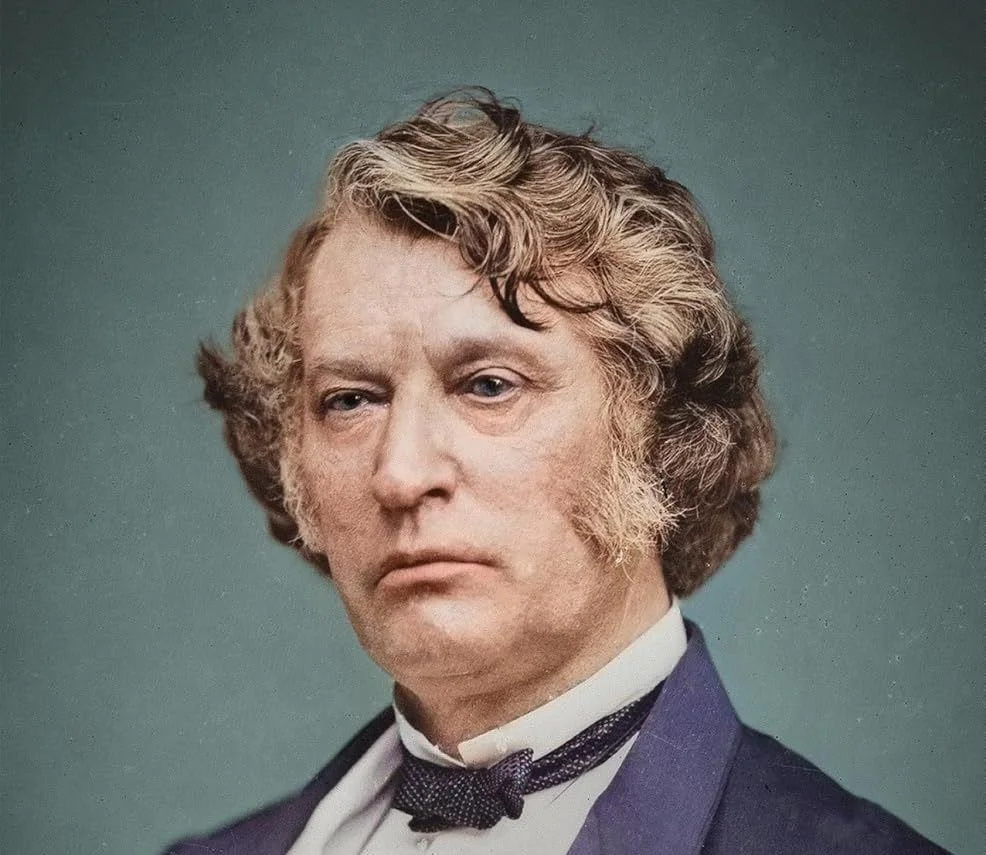
It's Time to Revisit McDonnell Douglas
McDonnell Douglas is from the bygone era of legal interpretation that looks beyond the text to the broader policy goals (from the judge’s perspective) that the law was designed to accomplish.
The Supreme Court’s unanimous decision this month in Ames v. Ohio Department of Youth Services holding that non-minority employees have the same equal opportunity rights as minority employees is a victory for textualists who have long maintained that race-conscious DEI directives cannot be squared with Title VII of the 1964 Civil Rights Act’s prohibition against discrimination “on the basis of race.” But the justices must go further to restore the plain language of Title VII. They need to scrap McDonnell v. Douglas, a 50-year old precedent that replaced Title VII’s straightforward anti-discrimination language with an elaborate burden-shifting scheme that has the effect of subjecting businesses of all sizes to frivolous employment claims.
McDonnell Douglas is well-known to employment lawyers, human resources professionals, and business executives who frequently deal with workplace discrimination disputes. The 1973 decision established a three-step process—unprecedented in federal statutory or procedural law—where the burden of proof shifts back and forth between the plaintiff and the defendant. In step one, the employee must make a “prima facie” showing. This can be done by alleging discrimination with respect to employment conditions on account of race, sex, or another protected characteristic. In step two, the ball is in the employer’s court to demonstrate a legitimate, non-discriminatory reason for its actions. Finally, in step three, the burden shifts back to the employee to show that the employer’s stated rationale is merely a pretext to conceal discrimination.
More than 50 years later, the Supreme Court has now clarified that the prima facie burden must be the same regardless of the employee’s race, sex, religion, or national origin. “As a textual matter,” Justice Ketanji Brown Jackson points out in her opinion for the unanimous court, Title VII “draws no distinctions between majority-group plaintiffs and minority-group plaintiffs.”
True, but as a textual matter, Title VII also says nothing about prima facie showings, burden-shifting, or three-step inquiries either. A return to the text of Title VII means scuttling all the judge-made components of McDonnell Douglas. Such an outcome would provide consistency and transparency in the resolution of employment disputes, benefiting both employees with genuine discrimination claims and companies that evaluate their employees based on merit, not unlawful bias.
McDonnell Douglas is emblematic of the bygone era of "purposivism," the school of legal interpretation that looks beyond the text to the broader policy goals (from the judge’s perspective) that the law was designed to accomplish. The decision, authored by Justice Lewis Powell, a Nixon appointee, quotes the text of Title VII only once in a footnote and offers no statutory basis for any of the stages of the burden-shifting framework. Instead, Powell invokes the “purpose of Congress to assure equality of employment opportunities” and the “societal [and] personal interests” at play in employment disputes as support for the three-step process.
That the high court in McDonnell Douglas unanimously agreed to a multi-part inquiry created out of whole cloth demonstrates how differently the justices operated at the time relative to today. As Justice Elena Kagan famously quipped, the justices are “all textualists now.” In the 1970s, even politically conservative, law-and-order jurists like Justice Powell saw their role as one of balancing, compromising, and ultimately making law as much as applying it. Now, owing to the success of organizations such as the Federalist Society in reorienting legal education and the judicial selection process around principles of originalism and textualism, a majority of Supreme Court justices view the text of the law as the law, to paraphrase Justice Antonin Scalia.
From a textualist perspective, McDonnell Douglas is a clear example of judicial overreach. As Justice Clarence Thomas writes in his concurring opinion in Ames, the Supreme Court “has never attempted to justify” the burden-shifting framework on the statutory language in Title VII. That’s particularly unfortunate given the poor results from the high court’s foray into human resource micromanagement.
McDonnell Douglas’s burden-shifting test has created tremendous pressure on companies to settle claims even if they are meritless. Because the prima facie showing is “not onerous,” to quote another non-originalist Supreme Court opinion of the same era, the burden of disproving an employment discrimination claim virtually always falls on the employer. It’s often overlooked that, under the McDonnell Douglas framework, the employer’s opportunity to demonstrate that it acted for legitimate business reasons—step two in Justice Powell’s three-step inquiry—occurs after the litigation discovery process has concluded. By this point, however, the company has already incurred hundreds of thousands of dollars in non-reimbursable legal fees, not to mention the costs of executive time spent preparing for depositions and tracking down corporate records, rather than attending to ongoing business.
Given the high monetary and operational costs of litigation, McDonnell Douglas leaves employers with a Hobson’s choice: either take a loss in the form of sunk legal costs or in the form of a settlement payment to the employee. At small companies, where hiring and firing decisions are frequently made by the company’s leadership, litigation can expose the executive team to depositions. Contesting an employment claim also means disclosing pending litigation to potential investors, incurring another significant non-monetary cost for early-stage companies. At big companies with massive amounts of electronic communications and data, the discovery costs can be enormous. Federal appellate judge Richard Posner once remarked that such “asymmetric discovery burdens” are typically enough to induce companies to a quick settlement.
To be fair, some of the judge-made features under the McDonald Douglas framework do favor employers. To bring an employment discrimination claim, many federal courts require the plaintiff to show that the company gave better treatment to a similarly situated “comparator” of a different race, gender, or national origin. While comparator evidence can certainly help an employee shore up a discrimination claim, courts should stop requiring such a showing for the same reason that they should replace the McDonald Douglas framework: neither is required by the statutory text.
The right outcome for employers and employees is for courts to treat employment disputes in the same manner as other civil cases. This means that companies should have the same opportunity to dismiss implausible discrimination claims at the onset of litigation, and plaintiffs should not be required to jump through hoops that aren’t in the law, just because these steps make a wholly atextual framework easier for the courts to administer. Justices Thomas and Gorsuch, who signed onto the concurring opinion, have already signaled that it’s time for the justices to revisit McDonnell Douglas. If their colleagues are as committed to textualism as they claim to be, they will welcome this opportunity.
Michael Toth is a practicing lawyer and a research fellow at the Civitas Institute at the University of Texas at Austin.
Constitutionalism

Amicus Brief: Hon. William P. Barr and Hon. Michael B. Mukasey in Support of Petitioners
Former AGs Barr and Mukasey Cite Civitas in a SCOTUS Brief

Rational Judicial Review: Constitutions as Power-sharing Agreements, Secession, and the Problem of Dred Scott
Judicial review and originalism serve as valuable commitment mechanisms to enforce future compliance with a political bargain.

Supreme Court showdown exposes shaky case against birthright citizenship
Supreme Court will hear challenges to Trump's order ending birthright citizenship, testing the 14th Amendment's guarantee for babies born in America.

Slavery and the Republic
As America begins to celebrate its semiquincentennial, much ink has been spilled questioning whether that event is worth commemorating at all. Joseph Ellis’s The Great Contradiction could not be timelier.

Two Hails For The Chief’s NDA
Instead of trying to futilely plug the dam to stop leaks, the Court should release a safety valve.


.avif)










.avif)



